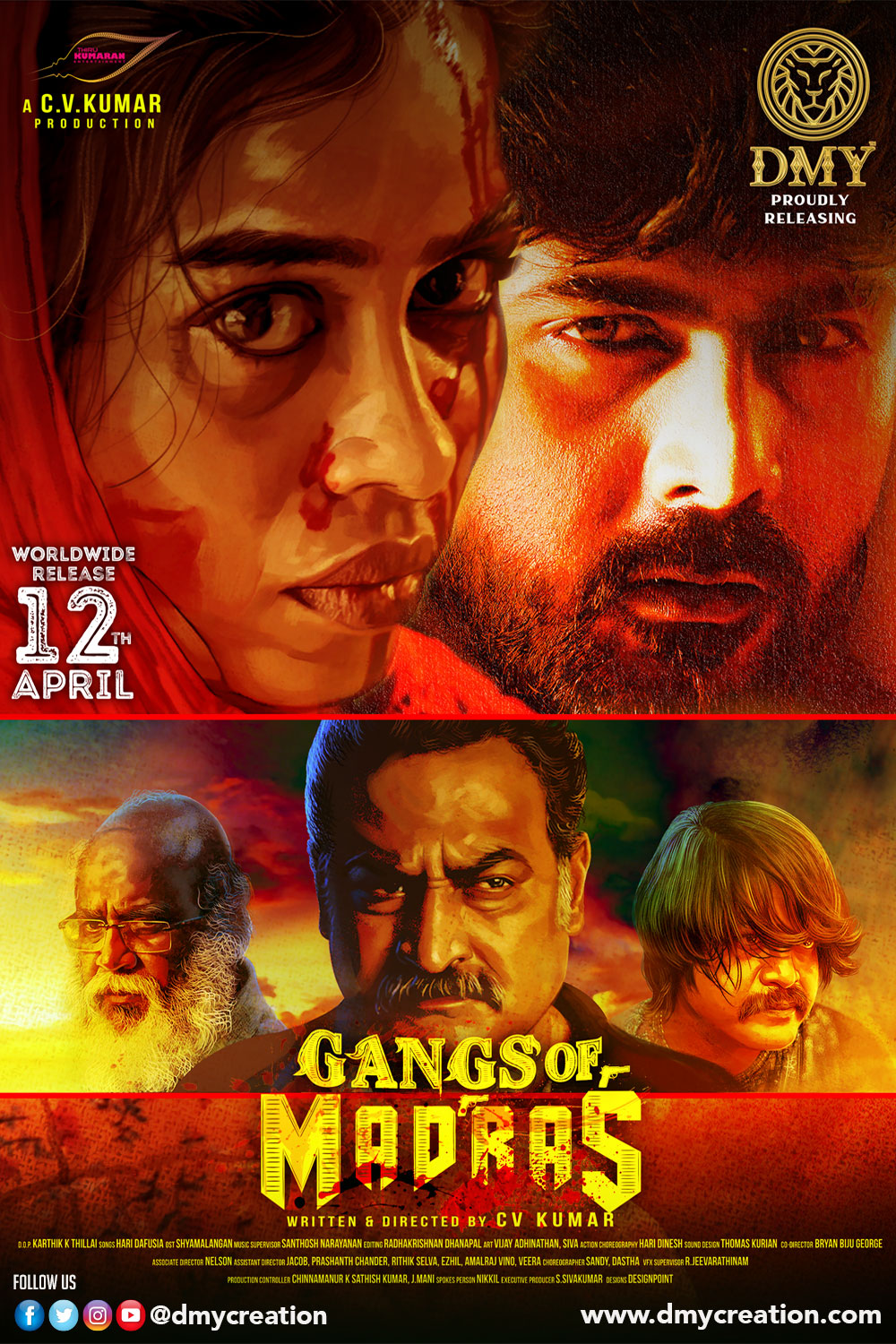


| cast | : | Priyanka Ruth, Ashok, Aadukalam Naren, Daniel Balaji, |
| director | : | C.V.Kumar |
| music director | : | Hari Dafusia, Shyamalangan, Santhosh Narayanan |
| production | : | Fox Star Studios & CV Kumar Production |
| language | : | Tamil |
| country | : | India |
| subtitle | : | English |
| classification | : | 18 |
| genre | : | Action,Crime |
| running time | : | 142 Minutes |
| release date | : | 12-04-2019 |
| format | : | 2D |
Gangs Of Madras Synopsis: A woman who loses her husband in a police encounter plots to take revenge on the gangsters who had framed him.
Gangs Of Madras Review: Gangs Of Madras opens with ‘The axe forgets but the tree remembers’, the African proverb that also marked the beginning of Sriram Raghavan’s revenge drama Badlapur. And much like in that film, we are introduced to a lovely couple whose life, filled with promise, is snatched away in a shootout. The survivor here happens to be the woman, who not only loses her man, but also the child that is in her womb as an aftermath of this tragedy. Like the Bride in Kill Bill (one of the films that director CV Kumar cites as an influence), this woman, Raiza is consumed by vengeance. But unlike in the other two films, where the killers were gun for hires, the antagonists here are ruthless gangsters who are part of a global drug peddling network. And Gangs Of Madras turns into a revenge movie that is set within the gangster movie format.
What sets this film apart from the number of gangster films that we have seen so so far is that its protagonist happens to be a woman. How does a woman from a humble background wade her way through the big, bad world of gangsters, where the only women we see are either submissive housewives or sex objects? Priyanka Ruth gives it her all, getting bruised and bloodied, to make us buy Raiza. Karthik Kumar’s frames are filled with reds and greens, signifying anger and the greed, the emotions that drive this plot, while Shyamalangan’s score (despite a theme that sounds eerily similar to music supervisor Santhosh Narayanan’s theme for Jigarthanda) tries to make this tale seem epic.
Unfortunately, the writing never feels wholesome. Barring Raiza, every other character feels underdeveloped and remain functional to the plot. The acting, too, remains functional. The lack of detailing (even the background information that we get are not in the form of character development, but appear as bullet points that come across as a means to showcase the research) results in us not being immersed into this milieu. Thus, Raiza’s journey into the violent world of gangsters feels too convenient.
And unlike in his previous film Maayavan, which coasted on the what-next thrills of its screenplay Kumar’s limitations as a director hurt the film. Gangster movies demand a certain directorial flair, but the direction here feels literal, a faithful reproduction of whatever existed on paper. Everything happens at an arm’s length (the extreme violence and the suggestive sex we see on screen , and we end up with a flavourless film.

